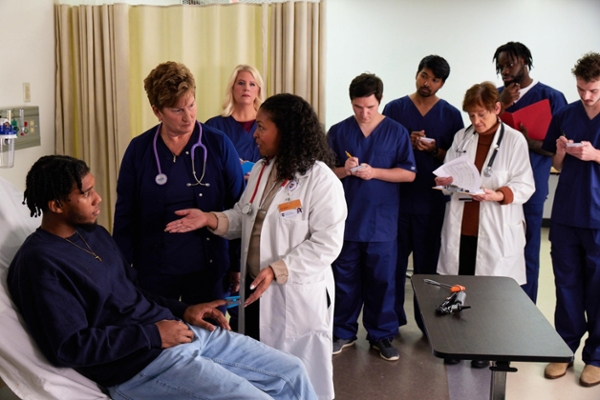Demonstrating excellence: Nursing programs recommended for reaccreditation
Demonstrating excellence: Nursing programs recommended for reaccreditation

Following a recent site visit this October, the undergraduate RN to BSN program from the Rowan-Virtua Salva School of Nursing & Health Professions (Salva SNHP) has been recommended by site team evaluators as meeting all of the standards for reaccreditation from the Commission on Collegiate Nursing Education (CCNE). The final decision for accreditation will be determined by the CCNE Board of Commissioners in the spring.
The RN to BSN program prepares those with a nursing diploma to work as BSN-trained registered nurses, a credential that offers stronger opportunities for career advancement and leadership roles. The program is also part of Salva SNHP’s new entry-level Bachelor of Science in Nursing program, in which Rowan students earn a nursing diploma at Virtua Health’s Our Lady of Lourdes School of Nursing and a BSN through Salva SNHP, offering a direct path for first-year college students to join the workforce with a BSN and addressing critical ongoing nursing shortages.
The new Certificate of Advanced Graduate Study, which provides a pathway for post-graduate registered nurses hoping to become nurse practitioners, was also recommended as meeting accreditation standards.
“Most certification examinations will require that you have graduated from an accredited program,” says Mary Ellen Santucci, RN, MSN, PhD, Head of the Department of Nursing at Rowan-Virtua SNHP. “But beyond that, it means that we have established a high level of program quality.”
Santucci and Nursing Department faculty began the reaccreditation process three years ago, compiling data and evidence supporting the program’s excellence across four standards: mission and governance; institutional commitment and resources; curriculum and teaching/learning practices; and assessment and achievement of program outcomes. Site visitors met with faculty, students, leadership from Rowan University and Salva SNHP, and representatives from partnering institutions and health systems.
In their initial report, evaluators lauded the degree of faculty-student communication, as well as the enthusiasm for the program expressed by students and community partners.
“They were impressed by our open communication with all of our partner schools, as well as our regional health care facilities,” says Santucci. “In addition, the development of the Department Resource Centers for both undergraduate and graduate students impressed site visitors, because they ensure that our students can get any resource they need in one place.”